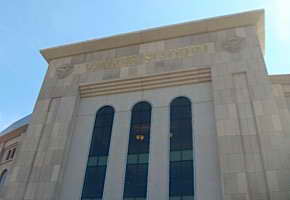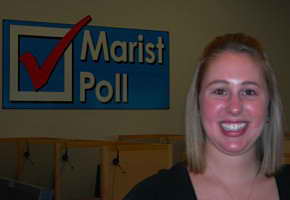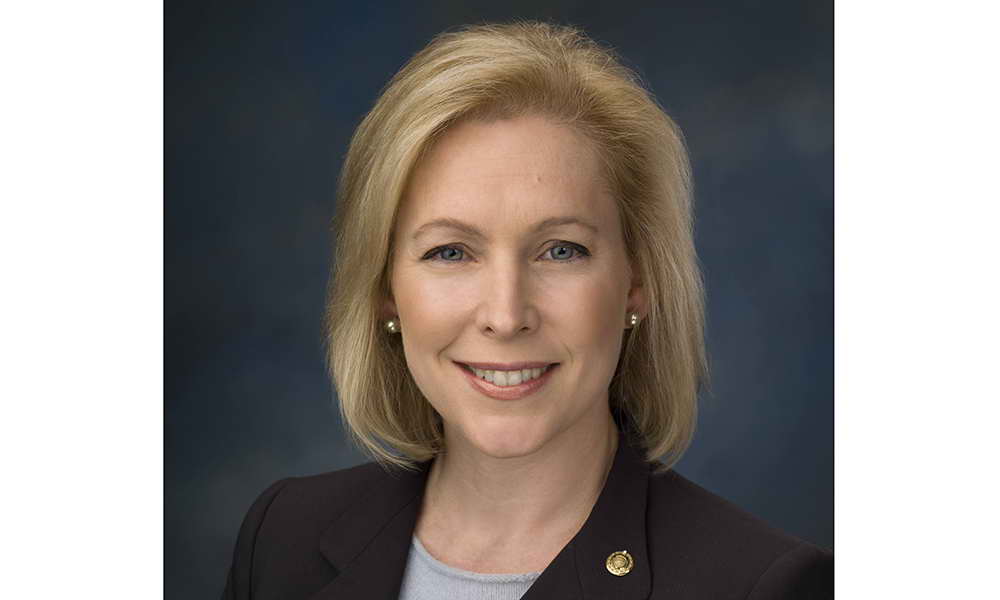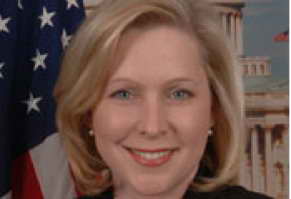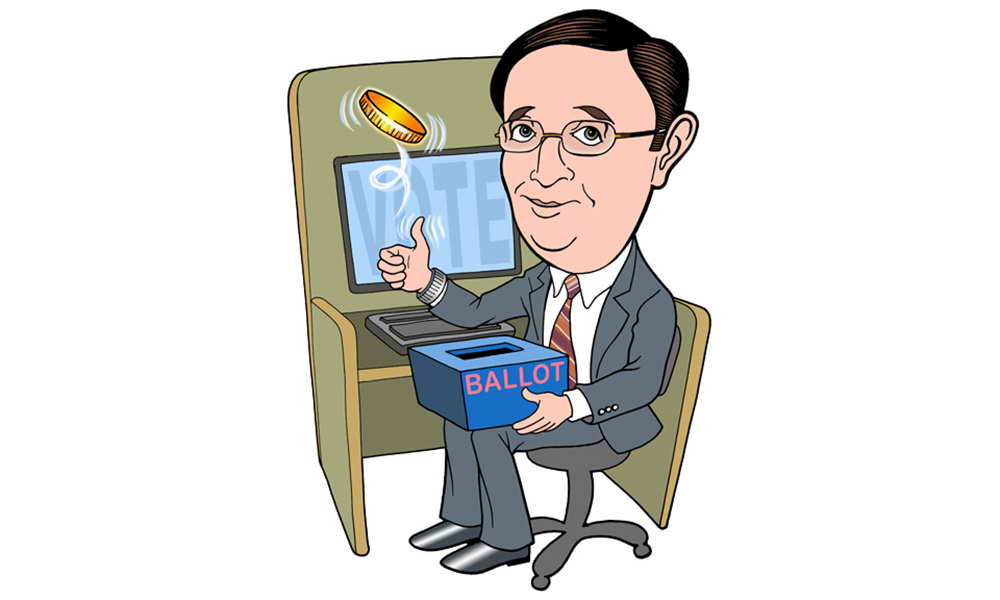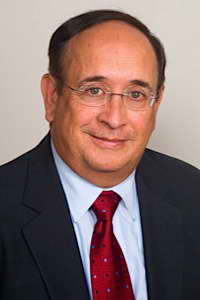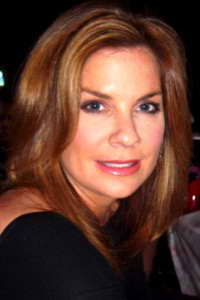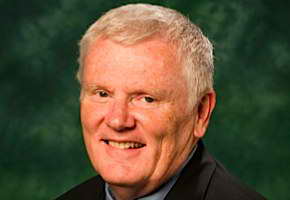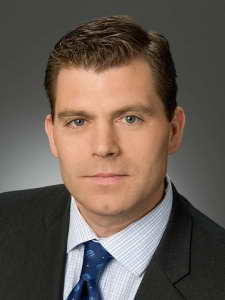By John Sparks
She’s covered every first lady since Mamie Eisenhower. Now, former White House correspondent and author, Bonnie Angelo, shares her views about Michelle Obama with The Marist Poll’s John Sparks. Read the transcript of the full interview below.
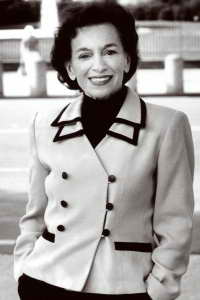
John Sparks
Bonnie, I want to start out by talking about Michelle Obama. How would you rate Michelle and the job she’s doing as first lady?
Bonnie Angelo
I’m trying to think of how you’d say she’s a ten-plus. She hit the ground running. She knew what she wanted to do and instantly without any break in time set about doing it, which was to reach out to many, many more kinds of people, and then we’ve had the opportunity in these recent days to see her absolutely a star on the world stage. Every move she made, the London newspapers just wrote and wrote about. Now they’re on the Continent, and I’m sure there will be the same kind of coverage. But she simply swamped the 20 Nation Summit with her presence and her activities.
John Sparks
Which former first lady does she remind you most of?
Bonnie Angelo
Michelle is cutting a new pattern. She reminds me of a cross-section of people. There is a big slice of Eleanor Roosevelt who was very concerned with shining her light into the darkness of the forgotten people in this country during those depression years. She’s partly Lady Bird Johnson wanting to make things more beautiful. She set about planting a vegetable garden in the White House grounds, on the White House grounds. That’s something that Lady Bird would’ve certainly approved of. She was like Jackie Kennedy in that she has a great sense of fashion and doesn’t mind being ahead of the game on that. So, she’s got a blend of many of the best attributes of several of our first ladies.
John Sparks
We took a recent poll, and we asked the respondents which of the following first ladies that they would like to see Michelle follow in the tradition of and mentioned Barbara Bush, Laura Bush, Hillary [Clinton], Jackie Kennedy, Nancy Reagan, and Eleanor Roosevelt. I’m just curious. You covered all of these, well probably with the exception of Eleanor. Would you like to see her follow in the tradition of one of these?
Bonnie Angelo
Well, no, not one of those necessarily because I think that list omits the most crucial person that she might be following, and that’s Lady Bird Johnson. Lady Bird Johnson never set a foot wrong. She never caused any problems in the White House, but she did things. Her beautification program across the country left lasting imprints that this nation still appreciates. So how she could… She must be included on that list, and I would say that certainly Michelle would take a lot of comfort in what she could see that Lady Bird did. On the others, of course, Eleanor Roosevelt would’ve been a great to her historic figure in that she shone her light on economically distressed families, on the woes that America was facing and needed to address. I think Michelle will not do as much of that, but I think she has already shown that, for example, she turned up on a Sunday morning with absolutely minimal, minimal press, maybe one reporter was allowed, working in a soup kitchen for the homeless here in Washington. Now, none of the others have ever done that, and she did it with minimal publicity. So, I think she has a very deep social conscience, and I see a lot of Eleanor Roosevelt in that. I think she also has a sense of style that has beguiled particularly on her trip to Europe. Every time she sets foot out of their quarters, the British press is just falling all over to write about Michelle. She has a sense of style like no other first lady since Jacqueline Kennedy. She wears the clothes that are quite daring and very fashionable, very chic. So, I think she can be compared to a number of the other first ladies, but certainly to the activists on the list.
John Sparks
Bonnie, you know most first ladies usually take on a project. You referred to Lady Bird and the beautification project. With Laura Bush, it was literacy, Rosalynn Carter mental health, Hillary [Clinton] and healthcare, I suppose. What does it say about a first lady when she chooses a project, and what does it say about what she might be willing to bite off?
Bonnie Angelo
Well, I think it shows her commitment to her new position. The first ladies must realize that they have enormous influence, not power, but influence, and certainly Michelle realized that from the campaign right on. There are those who didn’t do it. Nancy Reagan did minimal. Her concern was Ronald Reagan, making him happy. Her children never even visited the White House. I think after their first month there, I’m not sure that her own children, Patty and Ronald Jr., I’m not sure they were ever even in the White House again. They were totally irrelevant to the life of Nancy and Ronald Reagan. There were others. You mentioned Laura Bush and Barbara Bush. I mean remember Barbara Bush got us in – – got the country interested in literacy and reading. That was her project. She broke ground on that. Laura really was just following in her footsteps on that. I certainly think Laura did a lot in that regard, but there was nothing original about it.
John Sparks
Let’s go back to Michelle for a moment. Do you think that in the short time that she has been in the White House that she has changed or is in the process of changing the role of the first lady?
Bonnie Angelo
Yes, I do. I think compare her to Laura Bush, who’s a very popular, likeable person and chose a very safe topic, activity to be on. Who can be against literacy? I mean really nobody. But, Laura was very much the supporting person to her husband. They did practically nothing in a social way in the White House. In eight years there, they had only eight state – – only six state dinners, which is really quite an incredible lack of understanding. State dinners are not just where you show off your best silverware. It’s where you’re creating a stage for your visitors from foreign countries. I think that they overlooked, didn’t understand that function. So, I’m saying that Michelle is going back beyond them. Hillary, as first lady, got – – maybe stuck her neck out too far at the beginning when she really wanted to manage their healthcare initiative. Now, she’s totally qualified. She’s much, much more qualified now than she was then of course, much, but she got burned by the criticism, because that effort didn’t go well. So, she sort of retreated into being a more conventional person than she really was in her heart. Once again, you go back to Lady Bird whose imprint is still across this whole nation. She did… She woke up the nation to both beautifying itself and preserving its historic places. People forget that aspect of her work. But, nobody’s going to be against those, so she was – – it was safe, but she put energy and organization behind it; therefore, it has lasted all these years. Lady Bird’s work continues to this day. There’s not a thing you could point to from say Nancy Reagan who was a devoted wife to her husband. She adored him as you know, but I can’t think of anything that Nancy Reagan did in the White House that was lasting. There was some little effort about, oh, a couple of projects but they were not – – they didn’t catch on. They were not crucial. Her heart was not in it. So, I think you can go back to Lady Bird. You can then go back to Eleanor Roosevelt. Now, remember that the first lady who followed Eleanor Roosevelt’s tenure, and Eleanor had broken ground to do things beyond any – – and got much criticism, much harsh criticism and even scoffing at her work, which was so important, shining her light on the dark corners of our country. They would laugh about it. Her enemies, and they were multiple, would laugh about it going down to coal mines. She pointed out the terrible conditions that workers in this country must labor under for pitiful wages in many cases, so Eleanor Roosevelt’s got to be a basically White House saint on that. I think that Michelle is reaching out very much to African American projects to bring African Americans into the fold. In London where they are not nearly, nearly as advanced in their racial adjustments as this country is, I was Bureau Chief over there for quite a long time – – for a time. In London, she went to a girls school, an inspirational thing. Those girls are never going to forget that. She also did a number of other personal efforts to make people think particularly on that whole issue of bringing the black British into their – – more definitely into their society. They’re way behind us on that. I think that now she is on continental Europe, we’re going to see how it goes over there. I have no reason to think it will be other than the same outstanding success. This is a woman of great ability. People forget that she was a Princeton graduate. She was a Harvard Law graduate. She was a person who could achieve just almost anything on her own merits. She doesn’t get there from just being the wife of the president, and I think that is extremely important in this day and age when so many women are in the marketplace.
John Sparks
Bonnie, you covered, I think, every first lady in modern times since Mamie Eisenhower.
Bonnie Angelo
I have basically, yes.
John Sparks
Of all of those that you knew and covered, who do you think was the strongest and who was the weakest?
Bonnie Angelo
Bess Truman was the weakest, no question in my mind. She simply rejected any kind of function other than shaking hands at the mandatory tea receptions for ladies of standing. She did… And everything she did she was grumpy about. When you read her books about their tenure, it’s really quite sad that she never saw… now they lived most of their time, which she much, much enjoyed, living across Pennsylvania Avenue in what is now and has been for many years, the president’s guest house. They lived there about three years because, possibly four, because the White House during that time was totally renovated, totally renovated, but she was delighted not to have to live in the White House. She had no sense of the role of the White House or what the White House could do, what it symbolizes for this country, which was very sad. You hate for somebody to gripe about all of their time as first lady when it is really such a – – it can be such an effective role for accomplishing things, so I put her as the most ineffective. I think the others you have to look at them for what they specifically do. Rosalynn Carter certainly did a lot for mental health to make people aware, but it’s not a subject that you can get good photo opportunities out of, which is – – gets you in the newspapers and on television so that her choice of fields of subjects was extremely important, but it didn’t package very well. Lady Bird’s, as we said, is important and lasting and it was packaged wonderfully and never caused… oh people sometimes grumbled about the money or whatever that Lady Bird was spending on her gardens, which was a shabby way to look at it. She was a woman who was interested in the environment of this country, not just planting a rose bush here or there. I think Hillary Clinton did not live up to her capabilities at all, which we saw fully developed in the Senate, but she was not that — she didn’t kind of work out her place in the White House as well as she could have because we saw what she could do as Senator and as what she’s doing as Secretary of State and also what a powerful candidate she was in the presidential campaign. But Michelle Obama is just now – – we haven’t seen her in action for three months and she’s already done so much. Europe is just swooning over her.
John Sparks
What do you think is most important thing a first lady contributes?
Bonnie Angelo
I think a first lady should contribute concern for some big issue facing the whole country, not… I’m not saying political issue. I’m specifically not saying that, but a big issue like the environment, which is what Lady Bird was really all about, saving our environment and our history. Eleanor Roosevelt, you could see what her concern was, bringing the part of our country that was vanished almost into the darkness of poverty. Then, you get into the later times, now both of the Bush first ladies did a lot to emphasize literacy. I think that was admirable. I don’t think it probably connected that much to the nitty-gritty of black schools that are having such problems keeping their students. I don’t think it had any effect on that issue which is – – was – – is much graver than literacy per se.
John Sparks
Let’s talk about the influence that a first lady might have over her husband. Can you tell me of those that you covered who had the most influence over her husband and her husband’s actions?
Bonnie Angelo
I think Hillary Clinton had a great deal of influence because he respected her really first class brain and her sense of… I mean she was top of the class at Yale Law School. She was a person who had academic qualifications and had practiced in law. I think he respected her views on just about any subject that crossed their screen. I certainly know that Lyndon Johnson took a lot of his very thorny problems to Lady Bird, to talk to Lady Bird about, because he so held in high regard her good clear thinking, not publicly but he did that constantly. I don’t know. I didn’t get any sense of that with the Bush first ladies, but they certainly probably did more than perhaps seen publicly. Barbara Bush is such a strong personality that I’m sure that any issue that was current during their tenure, their four-year tenure, that she would’ve weighed in without hesitation to talk about her view, give her views to her husband. I think there’s no question about that. Jackie Kennedy didn’t care really what John Kennedy was doing as president. She had no bent toward the political world, but she put a lasting legacy, her stamp on the White House with her very careful historically correct refurbishings and established it in a formal legal way that people could donate accepted gifts, not just any little knick-knack,to the White House if it passed muster. So, she made people much more aware of the White House as a grand treasure of this country, and her stamp will be left on the White House for all years to come. She also set a very high standard for just elegance, elegance. Now I don’t think she had any real care for the common folk. I don’t think that figured in her mentality at all. She was a society girl who had wonderful taste, but I don’t think that she had any real compassion for the people who were struggling.
John Sparks
Bonnie, a minute ago you talked about Michelle and her credentials. She is a woman in her own right. She also has kids. Do you think that she is changing how people view the balance between work and family?
Bonnie Angelo
Oh, I think that’s a wonderful issue because she is certainly concerned about it, and it’s plain that she could’ve had all kinds of appointments across the board with her background and with her knowledge of not just politics, but public policy, but she is steering a more cautious course of social issues, shining her light where there’s been not enough light shone. Now she’s not going to let those two little girls go unattended, and the best thing about that is that those two little girls and Michelle are seeing their father/husband more than they’ve ever been with him. When he was in the Senate, they were back in Chicago. He would go for weekends, but mostly he was tied up in politics where the last two years before his election were campaign years. So, they actually are going to have more of a family life in the White House than they have ever been able to have, and I think that is a wonderful set of circumstances. I think they both seem to be very well adjusted little girls, each of them seems — that seems to be. They’re bringing their beloved grandmother to live with them. That’s a good thing to do. It gives stability when as for this present trip to the Summit in London and then on to many different meetings across the Continental Europe, they’re away, but they are at home with their grandmother, and I think they now are… From the very first days, they made those little girls enjoy it. They had their friends in from the first night. They had a scavenger hunt the first — the night of the inauguration. They think about them. Both of them do really well in school. They’re both smart little girls. That doesn’t surprise anybody. I think they are going to be really happy. I believe they’re going to have the best family life they’ve ever known.
John Sparks
Do you think that Michelle will influence fashion to the extent that Jackie did?
Bonnie Angelo
Not to that extent but, yes, she is going to influence it. But Jackie was about fashion, and she was beautiful as a model is beautiful and spent enormous amounts on clothes, much more than was known at the time, and so she set a standard for fashion that we had never had before, and people still remember it. She was so glamorous. I think Michelle is going to have a more down to earth fashion because she has been a career woman, but I think that she’s always going to look very smart, and she obviously enjoys clothes, so I think… I think she’s going to say, “Look, you can be a mother. You can do all kinds of things, and you can still enjoy looking quite wonderful.”
John Sparks
You know I just realized, I did not ask you about Pat Nixon. Tell me about Pat Nixon.
Bonnie Angelo
Oh, you know, that tells you something. That tells you something pertinent that she was so overlooked as First Lady, and she was — had the abilities to do so much more than she was allowed to do. But Nixon’s west wing cadre did not see any real particular value in the president’s wife, you know. They would use her for certain things, but they didn’t let Pat be Pat. Now, I traveled with her on all of her trips that she did solo, and the first ones were for – – they sent her out much too early really to hotspots of poverty programs, and that was very difficult. She ran into jeering crowds. It was not a well thought through trip that her staff threw her out onto really early. I was with her in Peru when she went down again solo, when they had that massive earthquake, and the United States came through with plane loads of goods and clothing, and she was down there on the mountain top with the local people. She also met with the president of Peru who had been very difficult with America in the months before she was – – came, and she smoothed things over to the degree that it was really noticed in diplomatic circles. So, she had more talents than the president’s hard-eyed men were willing to see. When I went to Africa with Pat Nixon, it was again, Pat was on her own. We went to, I guess, three countries in black Africa on the western nations — Ghana, and Ivory Coast, and Liberia. She was a sensation. The streets were lined with people leaping and shouting and playing music, and she just blossomed. It was marvelous to see. It was a tremendously successful trip. I think when she was with him, she was just so cast in the little wife along side, you know. I don’t… When she was on her own, she blossomed into being Pat Ryan again, and I watched that on numerous trips. It was visible, and this strange coldness or stiffness with which he greeted her after some of those really tough trips on the — at a White House south lawn greeting, he was just — it was just very cold. I remember coming back, the earthquake trip into Peru, which she had been a wonderful success worldwide, and she met up with him at the Grand Ole Opry where they were — it was supposed to be her birthday, well he forgot to introduce her, and Roy Acuff stepped in and very smoothly just did it. But, he… But the president was supposed to. I mean, it was just a lack of appreciation for what she could have done, so I feel that that’s why we forgot to mention her in the first instance in this conversation is that she was not free to be Pat.
John Sparks
Well it reminds also of one other person I did not ask you about, and this one was not really elected to the White House and was a very short term, but yet Betty Ford…
Bonnie Angelo
Betty Ford, yes. Betty Ford was a breath of fresh air. She came when the White House had been in its absolute dismal time coming up to the impeachment and the resignation, and the Fords came in, and they were so unaffected and straightforward and untarnished by any of the Nixon shenanigans, and she didn’t have very long to establish herself, but she brought a breath of openness and fresh air to the White House that was… and let me tell you one other thing she did that was really, really crucial. I remember the day so well. She had been making a speech to a great big group of women’s organizations out of one of Washington’s major hotels. From that speech… now she stopped at the door because she and I had arranged that we would have our picture taken together there because I was doing a cover story for Time that week on the hard things that face first ladies. Pat Nixon was in travail, well not just firstly, political-wise. Joan Kennedy had just gone to an alcoholic institution, and all of a sudden from that meeting that she very nicely addressed this large group, she went straight to the National Institutes of Health for a breast cancer operation. She let nobody know. She was her own smiling self. I think the strength of her to do what she was supposed to do without letting on that she was facing a crisis in her life, to me, that was very impressive, and it showed that this person had great strength in her soul.
John Sparks
You know, you mention her name today and she’s been gone for quite awhile, but I equate it with the Betty Ford Center for…
Bonnie Angelo
Exactly. She used…. now she had a tendency to alcoholism. She had that tendency in the White House. They always attributed it to taking — she had shoulder and difficulties that she had to take drugs for. They always attributed it to that, to the painkillers for her bad shoulders. Well, it wasn’t really. It wasn’t, but that was the way it was. So, when they got out of the White House, then, it got worse and when they retired to Colorado at that time, President Ford said to his beloved Betty, “We can’t go on like this. You have got to do something about this, Betty. I will help you. We will do anything, but you have got to do it yourself.” And, when he just talked straight to her, she realized that she… and he said to her, “You’re strong and you’ve done other — everything. This you’ve got to do yourself,” so that’s when she went for treatment in the California establishment facility and was never afflicted with alcoholism again. But what happened from there, she realized she could turn it into a positive thing in her life, and she established the Betty Ford Clinic. She made alcoholism as a social problem something you talk about, something you deal with. She made a lasting imprint on who knows how many people across this country who were able to pull themselves out of an alcoholic habit for — by the inspiration of Betty Ford. So, I think she left a tremendous imprint.
John Sparks
Bonnie, I’m going to have to wrap things up, but I can’t do that without asking you one final question and that is that as you well know, and I do too, newspapers are folding, the television networks are closing bureaus and making deep cuts. What kind of impact will this have on covering the first family which – – and the first lady, which of course was your expertise?
Bonnie Angelo
Well, I covered much more than that. I did that, but I also covered politics and the White House. I covered the first ladies when they were news, which was a good way to do it. I was not with them all the time, but a lot of them really made news, you know.
John Sparks
Sure.
Bonnie Angelo
I think it’s… You know my mind can’t even wrap itself around this problem because it requires a certain kind of coverage for their activities to make a national impact, and these women, almost all of them in the modern times, have done something major, have really left footprints on our society. I don’t exactly… I know you can do it on all kinds of Internet outlets, and there are new ones coming along even as we speak, I just don’t think it’s quite the same as reading about it in your morning newspaper, but maybe that’s because I love my morning newspapers and my news magazines, yes.
John Sparks
So do I. So do I. Bonnie, it’s been a real pleasure talking with you. I really appreciate your time today.
Bonnie Angelo
Well, I love talking with you because this experience — these experiences, these women were great events in my life and in our history, and I’m just always happy to talk a little bit more about how they really were.
John Sparks
Well, thank you so much for your time.
** The views and opinions expressed in this and other interviews found on this site are expressly those of the speakers or authors and do not necessarily reflect the views of The Marist Poll.
Related Story:
4/16: A New Era for First Ladies?



